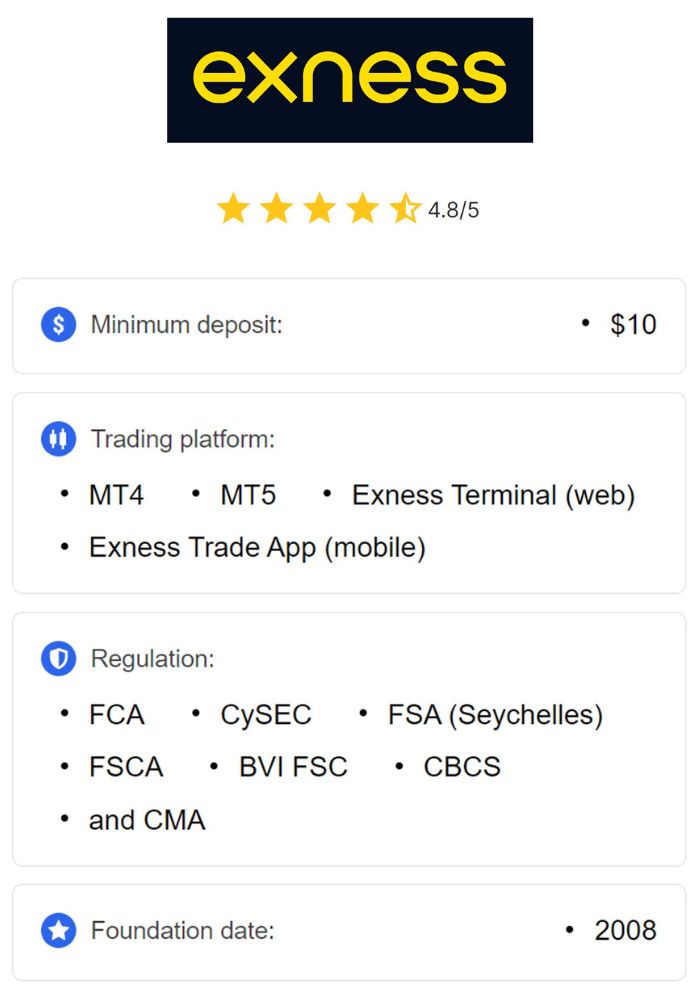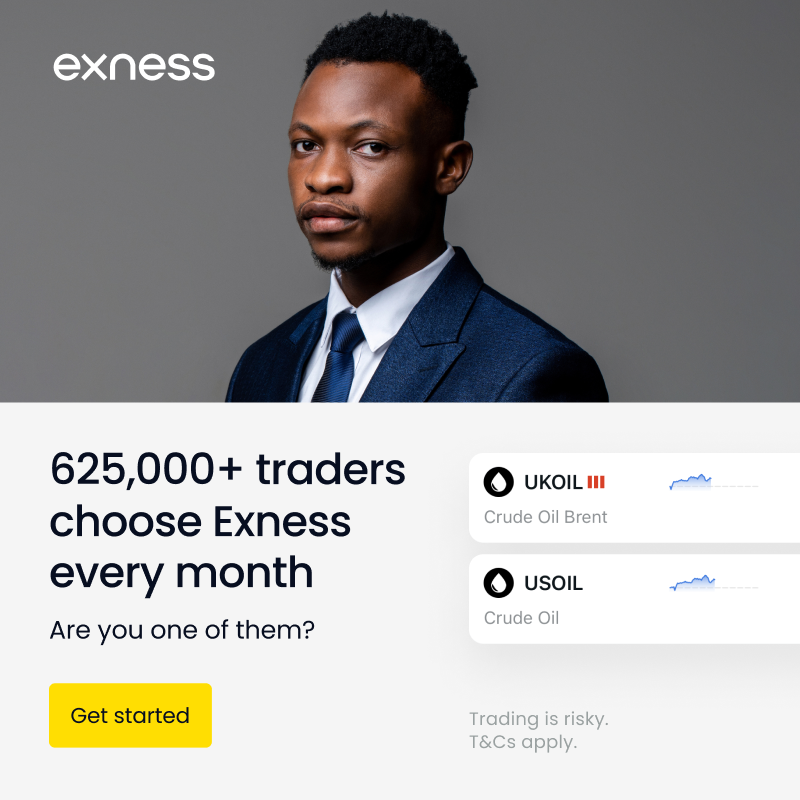
6 minute read
Is forex trading legal in China? A Comprehensive Guide
Forex trading has gained massive popularity worldwide, but in China, strict financial regulations make it a complex and often misunderstood industry. Many traders wonder: Is forex trading legal in China? The short answer is yes, but with significant restrictions.

💥 Trade with Exness now: Open An Account or Visit Brokers 🏆
China has one of the most regulated financial markets in the world. While individuals can trade forex, the government bans domestic forex brokers and enforces strict controls over capital outflows. However, many Chinese traders still access the forex market through offshore brokers.
In this comprehensive guide, we’ll explore:
The legal status of forex trading in China.
Regulations imposed by Chinese authorities.
Risks and challenges for traders.
The best strategies for legal and safe forex trading in China.
1. The Legal Status of Forex Trading in China
Forex trading in China operates under strict government oversight. While trading foreign exchange is not illegal, the Chinese government imposes severe restrictions on forex trading to control capital outflows and protect the economy.
What is Allowed?
✅ Chinese citizens can trade forex through foreign brokers.✅ Trading on regulated international platforms is permitted.✅ Forex trading for corporate and business purposes is legal.
What is Banned?
❌ Domestic forex brokers are prohibited.❌ Retail forex trading with leverage from local institutions is not allowed.❌ Prop trading firms and unregulated brokers operating in China face severe restrictions.
Since all forex brokers in China are banned, traders must use offshore brokers to access the forex market. However, the Chinese government constantly tightens restrictions on internet access, foreign transactions, and forex-related activities.

💥 Trade with Exness now: Open An Account or Visit Brokers 🏆
2. Chinese Government Regulations on Forex Trading
China has a highly regulated forex market controlled by key financial authorities:
A. The People’s Bank of China (PBOC)
The PBOC is responsible for China’s monetary policy and foreign exchange regulations. It controls:
Capital outflows to prevent excessive foreign currency trading.
The Chinese Yuan (CNY) exchange rate to stabilize the economy.
Foreign exchange reserves to maintain economic balance.
B. The State Administration of Foreign Exchange (SAFE)
SAFE monitors all forex transactions in China and ensures compliance with government policies. It:
Restricts large forex transfers outside China.
Prevents currency manipulation and fraud.
Regulates forex-related businesses and investments.
C. The China Banking and Insurance Regulatory Commission (CBIRC)
The CBIRC oversees financial institutions and ensures that Chinese banks comply with forex regulations. It restricts banks from engaging in:
High-leverage forex trading for retail traders.
Unlicensed forex brokerage services.
D. The Cyberspace Administration of China (CAC)
China blocks foreign forex broker websites and online trading platforms through firewalls and internet censorship. Many forex-related websites, including brokers, trading forums, and news portals, are inaccessible without a VPN.
3. The Ban on Domestic Forex Brokers
Unlike other countries, China does not allow local forex brokerage firms to operate. This means:
No Chinese forex brokers can legally offer trading services.
All forex brokerage services must be conducted offshore.
Chinese traders must use international brokers to trade forex.
Why Did China Ban Local Forex Brokers?
The Chinese government fears that:
Retail traders may lose money due to forex market volatility.
Capital outflows through forex trading may weaken the Chinese Yuan.
Scams and fraud from unregulated brokers could lead to financial instability.
Since 2017, China has cracked down on forex brokers, banning many firms and penalizing those that promote forex trading inside the country.
4. Challenges Faced by Forex Traders in China
Although forex trading is not illegal, traders in China face significant obstacles when accessing the market.
A. Internet Restrictions & Censorship
Many international forex websites are blocked in China, including:
Foreign broker websites.
Trading platforms like MetaTrader 4/5.
Forex education websites and forums.
To bypass these restrictions, traders often use VPNs (Virtual Private Networks). However, the Chinese government regularly bans VPN services, making it harder to access forex platforms.
B. Limited Deposit & Withdrawal Options
Since China restricts capital outflows, traders face difficulties when:
Depositing money into offshore forex accounts.
Withdrawing profits from international brokers.
Many banks in China block transactions related to forex trading, forcing traders to use:✅ Cryptocurrency transactions (Bitcoin, USDT).✅ E-wallets like Neteller, Skrill, and PayPal.✅ Local payment providers that partner with offshore brokers.
C. High Risk of Fraud & Scams
Due to forex trading restrictions, many unregulated brokers target Chinese traders with:❌ Fake forex investment schemes.❌ Ponzi scams promising guaranteed profits.❌ High-leverage accounts with unrealistic conditions.
To avoid fraud, traders should only use well-regulated brokers licensed by reputable authorities like:
The Financial Conduct Authority (FCA) – UK.
The Australian Securities and Investments Commission (ASIC).
The Cyprus Securities and Exchange Commission (CySEC).

💥 Trade with Exness now: Open An Account or Visit Brokers 🏆
5. How to Trade Forex Legally and Safely in China
Despite strict regulations, traders in China can still trade forex legally by following these steps:
Step 1: Choose a Reputable Offshore Broker
✅ Select a broker regulated by FCA, ASIC, or CySEC.✅ Ensure the broker supports Chinese traders.✅ Verify their deposit/withdrawal methods.
Step 2: Use a VPN to Access Trading Platforms
Since many broker websites are blocked in China, a VPN helps bypass internet restrictions. However, always check the latest regulations on VPN use in China.
Step 3: Use Alternative Payment Methods
Since bank transfers may be restricted, use:✅ E-wallets (Skrill, Neteller).✅ Cryptocurrency payments.✅ Third-party payment services approved by brokers.
Step 4: Trade on a Swap-Free (Islamic) Account
China has a large Muslim population, and some traders prefer Islamic forex accounts that:✅ Do not charge swap fees.✅ Follow Sharia-compliant trading principles.
Step 5: Stay Updated on Chinese Forex Laws
Forex regulations change frequently, so follow updates from:
The People’s Bank of China (PBOC).
The State Administration of Foreign Exchange (SAFE).
6. Best Forex Brokers for Chinese Traders
Here are some top forex brokers that accept traders from China:
Exness – Low spreads, fast withdrawals, and Chinese-language support.
IC Markets – ECN trading with deep liquidity and low commissions.
Pepperstone – Best for high-frequency trading and low latency execution.
XM – High leverage, beginner-friendly, and supports WeChat Pay.
FXTM – Strong educational resources and copy trading features.
Conclusion: Is Forex Trading Legal in China?
Yes, forex trading is legal in China, but under strict government regulations. While individuals can trade forex through offshore brokers, local brokers are banned, and traders face significant restrictions on capital outflows and internet access.
To trade forex legally and safely in China:✅ Use regulated offshore brokers.✅ Bypass internet restrictions responsibly.✅ Select alternative payment methods for deposits/withdrawals.✅ Stay updated on forex laws in China.
By following these guidelines, traders in China can participate in the forex market while minimizing risks and ensuring compliance with local laws. 🚀
Read more:




